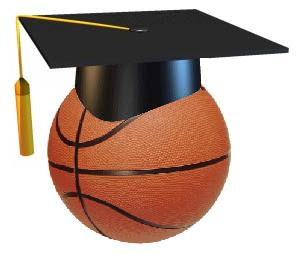As the new school year gets underway across the US, students of all ages are signing up for sports and getting into the swing of pre-season practices. Decisions about what sport(s) to participate in can be as challenging as decisions about what classes to take – and can potentially have a huge impact on the lives of students, their families, their college aspirations and possibilities, and more.
Does participation in athletics ultimately support or hinder academic achievement? What does the relationship between athletics and academics really come down to? As a tutor, depending on your relationships with the students (and parents) you work with, you may be called upon to offer opinions and advice. And like many teachers, possibly you’ve seen your students miss sessions, skip assignments or otherwise seem to slack off due to athletics.
Are commonly voiced prejudices around mixing academics and athletics justified? Here are some thoughts on the matter from the blogosphere.
Sports = greater self-confidence
Positive self-esteem enables people to feel good about who they are and what they can do, which gives them enhanced confidence to meet new challenges. Numerous studies positively correlate participation in sports with greater self-confidence in both girls and boys. This may be especially important during adolescence, when students are under intense pressure to deal with huge developmental and social changes – during which their self-esteem often declines.
This correlation supports growing evidence that academic participation “… has a positive effect on the lives of participating students, especially in an academic arena.” Many recent studies have found that student-athletes have higher career aspirations, better school attendance – which could likely improve academic motivation and performance.
Sports = better time management
Student-athletes are forced to find a way to fit in their classes, studies, time to eat, sleep, etc. on top of the demands of sports programs. Student-athletes self-report that this motivates them to stay organized and to schedule and manage their time efficiently. Whereas in the off-season they might be more inclined to let things slide, hang out and socialize more, etc.
Jeff Ward, Director of Athletics at Bowdoin College, looks at grades for pretty much all Bowdoin’s student every semester. He has an interesting view on the academic performance of the college’s student-athletes: “You would think in season there would be a slight drop-off [in grades]– that does not seem to be the case. From talking with students my sense is that their lives are a little more organized when they’re in season. As a consequence they do just as well and possibly even a little bit better when they’re in season.”
An “athletic subculture” = greater academic motivation
It’s hard to say which comes first: a competitive inclination that predisposes a student to excel in sports and academics, or greater drive that comes from playing sports. Either way, a number of studies, including one performed at UConn in 2008, have explored how the peer pressure of a competitive sports culture (which clearly exists in the US both in schools and in the wider culture) predisposes student-athletes to excel in academics also.
Thoughts for tutors
What’s the bottom line for tutors on this issue? Your role as an academic support becomes even more crucial given the need for student-athletes to work and learn efficiently. Supporting better time management and organization could have a big impact on your learners’ success. The more flexible you can make your service delivery model, the better you can serve student-athletes. Finally: whatever your personal experiences and potential biases against mixing sports and academics, recognize that both endeavors are important.
What are your ideas and experiences on this issue? Please comment and share.
Featured image courtesy of Mike Licht, NotionsCapital.com.
SAT vs ACT: Choosing the Right Test [NEW EBOOK]
Download this free 20-Page Ebook for Tutors Now!
Our free 20-page ebook is a step-by-step guide on how to select the right test for your student. Learn everything you need to know about using the PLAN and PSAT to improve student scores, how to leverage learning analytics to select one test over the other, and other tips on how to take the guesswork out of selecting the ACT vs the SAT.











